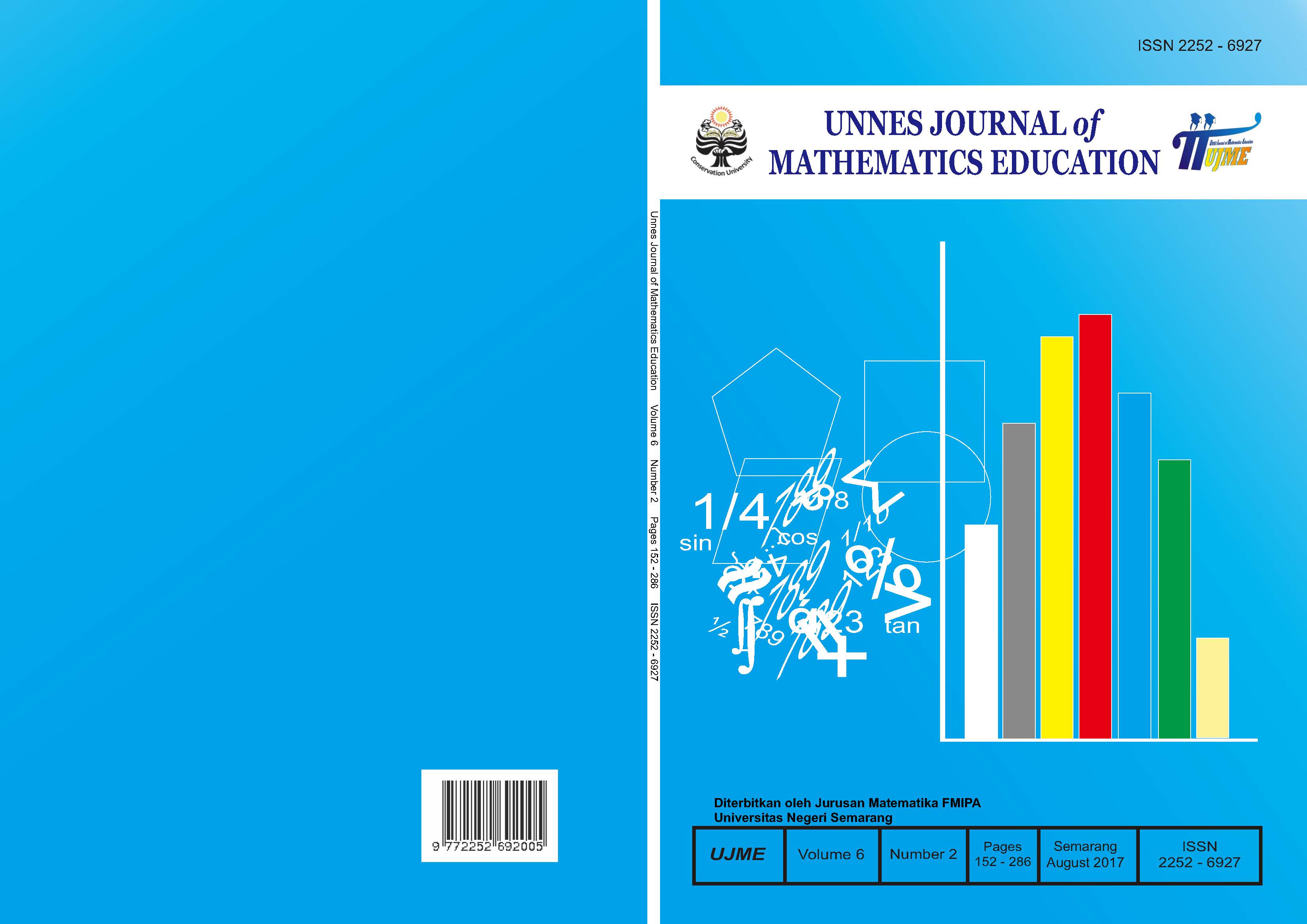Influence of Jakri Game on Elementary School Students’ Understanding and Interests on Word Problem: Using Realistic Mathematics Education
##plugins.themes.academic_pro.article.main##
Abstract
This study aims to clarify the influence of Jakri game in improving students’ understanding and interest in learning word problem. By using Realistic Mathematics Education (RME) approach, the classroom is designed to support students to understand word problem. 81 students in Alor Regency, East Nusa Tenggara Province, were pointed out in order to reach the objectives of the data. This research used a quantitative method to measure students’ understanding and interest in learning word problem by playing Jakri. Based on the level of RME approach, many students are able to reach level 1, students easy to accustom with Jakri game (real situation level), but students have some difficult to shifting from level 2 to level 3 (model-of level to model-for level). No one of them can reach the formal mathematics level (level 4). Students also have difficulty to do computation but the students create new mathematics sentence based on their own story. The result based on the questionnaire which measures students’ interest in Jakri game shows that the students like the game which mean that they interested to this game and enjoy the mathematics class.
##plugins.themes.academic_pro.article.details##
References
Caldwell, J.H., Golbin, G.A. (1979). Variable Affecting Word Problem Difficulty in Elementary School Mathematics, Journal for Research in Mathematics Education 10(5), 323.
Cunningham, B. (2014). Good at Math, Bad at Word Problems: Hor to Help. Retrieved from https://www.understood.org/en/learning-attention-issues/child-learning-disabilities/math-issues/good-at-math-bad-at-word-problems-how-to-help, December 26, 2016
Gunawan, H. (2010). Analisis Konten dan Capaian Siswa Indonesia dalam TIMSS. Jakarta. Retrieved from
http://litbang.kemdikbud.go.id/data/puspendik/HASIL%20RISET/TIMSS/LAPORAN%20TIM SS%20-%20Analisis%20Konten%20dan%20Capaian%20Siswa%20Indonesia%20dalam%20TI MSS%20Tahun%201999,%202003,%202007%20(Matematika).pdf, July 19, 2016.
IEA. (2011). Overview TIMSS and PIRLS 2011 Achievement. IEA.
Intensifptn. (2013). 10_Permainan_Jadul_Anak Indonesia. Retrieved from http://www.kaskus.co.id/thread/51cd10131ad7196c0500000/10-permainan-jadul-anak-Indonesia, June 28,_2013.
Keijzer, R. (2003). Teaching formal mathematics in primary education. Fraction learning as a mathematising process. Utrecht: Utrecht University/Freudenthal Institute (Doctoral dissertation).
Ministry of Education and Culture. (2015). Laporan Hasil Ujian Nasional. Retrieved from http://www.kemdikbud.go.id/, June 10, 2016.
Minister of National Education Republic of Indonesia. (2003). Act of the Republic of Indonesia Number 20, Year 2003 on National Education System. Retrieved from http://planipolis.iiep.unesco.org/upload/Indonesia/Indonesia_Education_Act.pdf , October 29, 2015.
OECD. (2014). PISA 2012 Results in Focus What 15-year-olds Know and What They Can Do with What They Know. OECD.
Schoenfeld, A.H. (2016). Why are Word Problems So Darned Hard?. University of California Berkeley, CA, USA. Retrieved from
http://www.msri.org/attachments/workshops/454/Alan%20Schoenfeld%20power%20point.pdf
TESS-India. Mathematical Stories: Word Problems. The Open University UK and UK aid. Retrieved from
http://www.open.edu/openlearnworks/pluginfile.php/134932/mod_resource/content/3/EM04_AIE_Final.pdf, June 10, 2016
Tiro, M.A, Hamra, A, Sukarna. (2010). Analysis of the Determinants of Learning Outcomes Using Data from the Programme for International Student Assessment (PISA). Retrieved from
http://litbang.kemdikbud.go.id/data/puspendik/HASIL%20RISET/PISA/Laporan%20PISA%20-%20Analysis%20of%20the%20Determinants%20of%20Learning%20Outcomes%20Using%20Data%20from%20the%20Programme%20for%20International%20Student%20~1.pdf, July 19, 2016.
Valentin, J.D.,Sam, L.C. (2004). Roles of Semantic Structure of Arithmetic Word Problems on Pupils Ability to Identify the Correct Operation. Retrieved from http://www.cimt.org.uk/journal/valentin.pdf
Van den Heuvel-P, M. (2001). Realistic Mathematics Education as Work in Progress. Retrieved from
http://www.fisme.science.uu.nl/staff/marjah/documents/Marja_Work-in-progress.pdf
Van Hiele, P. (1986). Structure and Insight: A Theory of Mathematics Education. Orlando, FL: Academic Press.
Yeap, B.H., Kaur, B. (2001). Semantic Characteristics that Make Arithmetic Word Problems Difficult. 24th Annual Merga Conference: Sydney. Retrieve from https://www.merga.net.au/documents/Yeap&Kaur.pdf
Wijaya, A. (2008). Design Research in Mathematics Education: Indonesia Traditional Games as Means to Support Second Graders’ Learning of Linear Measurement. Master Theses. Utrecht University. Netherlands.
Wijaya, A., Doorman, L.M., Keijze, R. (2011). Emergent Modelling: From Traditional Indonesian Games to a Standard Unit of Measurement. Journal of Science and Mathematics Education in Southeast Asia, 34(2), 149-173.
